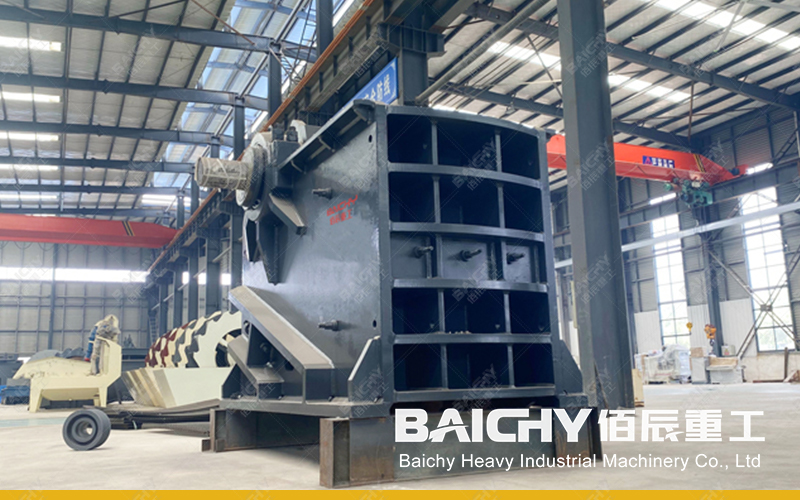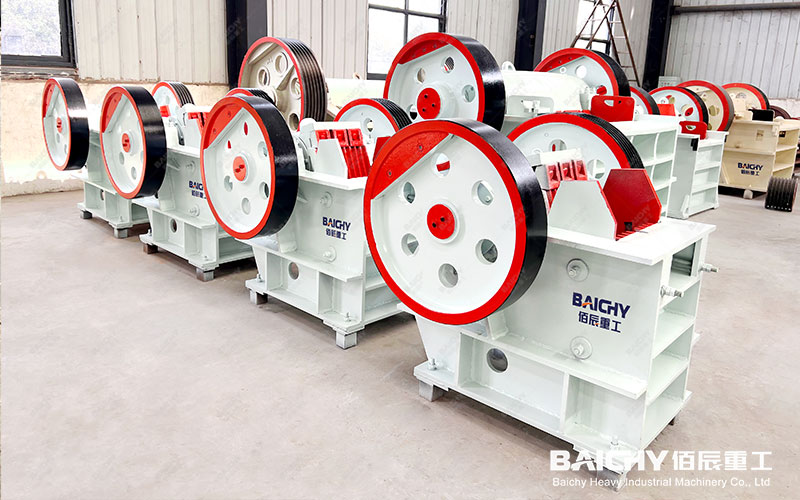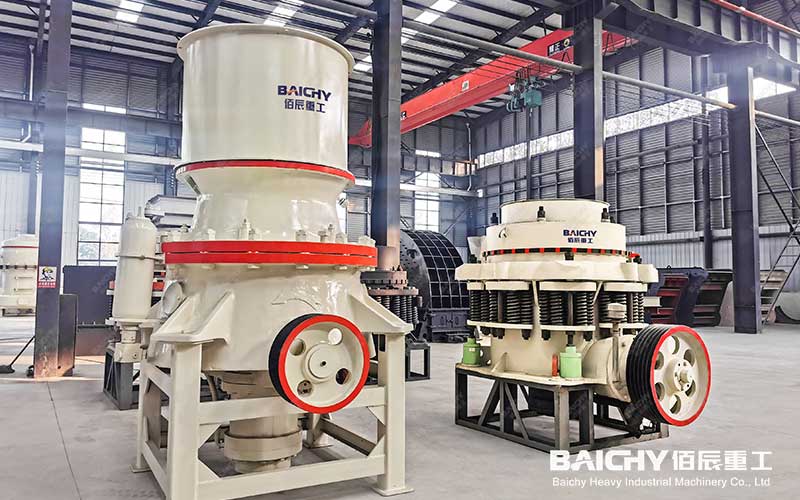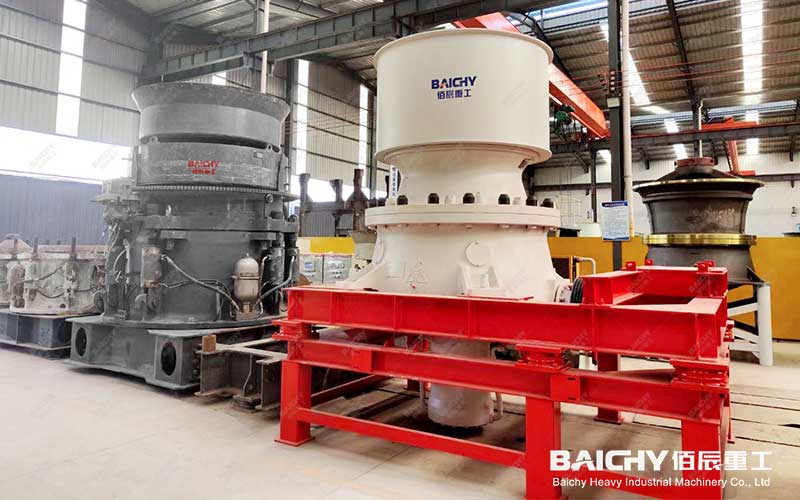
There are many common causes of failure that may occur during the use of the jaw crusher. The following is a clear summary and point-by-point representation of these causes of failure:
1. The main machine stops suddenly
• Discharge port is blocked: the material bin is blocked, causing the main machine to stop.
• Triangular belt problem: the triangular belt that drives the groove wheel is too loose, causing the belt to slip.
• Loose eccentric shaft fixing bushing: causing no gap on both sides of the frame bearing seat and the eccentric shaft to get stuck.
• Bearing damage: Bearing damage will directly affect the operation of the main machine.
2. Crushing work stops but the main machine groove wheel and movable jaw operate normally
• Tension spring breaks: the failure of the tension spring causes the crushing work to be unable to proceed.
• The toggle plate falls off or breaks: the toggle plate is an important part of the crusher, and it's falling off or breaking will cause the crushing work to stop.
3. The output does not meet the factory standard
• Material hardness or toughness exceeds the standard: the hardness or toughness of the crushed material exceeds the range specified in the instruction manual.
• Motor wiring problem: The wiring of the motor power supply is reversed or the wiring method is wrong.
• Improper discharge port size: The discharge port size is smaller than the specified limit.
• Jaw plate displacement: The tooth tops of the movable jaw and the fixed jaw are opposite to each other, affecting the crushing effect.
• The clearance between the movable jaw and the bearing is too large: the outer ring of the bearing rotates, affecting the crushing efficiency.
4. There is a jumping or impact sound when the jaw plate is working
• The fastening bolts are loose or dropped: The fastening bolts of the jaw plate are loose or dropped, which will cause the jaw plate to work unstably.
• The discharge port is too small: the bottoms of the two jaw plates collide with each other to produce sound.
5. The eccentric shaft is bent or broken
• Overturning during hoisting: The main machine overturned during hoisting, causing the eccentric shaft to be bent by force on one side.
• Excessive material hardness: The hardness of the crushed object exceeds the requirements of the product manual.
• Long-term overload operation: Long-term overload operation of the main machine causes fatigue fracture of the eccentric shaft.
• Improper heat treatment: Improper heat treatment of the eccentric shaft leads to stress concentration, resulting in short-term fracture.
6. Broken movable jaw
• Casting defects: The movable jaw has serious defects such as dense pores during casting.
• Improper feeding position: The material bursting position is incorrect, biased to one end or the angle of the lower hopper is too steep, causing the material to directly hit the head of the movable jaw.
7. The temperature rise in the bearing or movable jaw is too high
• Lubrication problem: The bearing is out of oil, too much oil is injected or the oil hole is blocked.
• The position of the flywheel counterweight block is offset: causing the frame to jump, which in turn affects the temperature of the bearing and the movable jaw.
8. The flywheel swings left and right axially
• Wear problem: The flywheel hole, eccentric shaft or flat key wears, causing loose fit.
• Casting defects or loose expansion sleeves: The flywheel has casting defects or loose expansion sleeves.
9. Knocking sound at the rear of the frame
• Tie rod not tightened: The Tie rod not tightened causes the toggle plate to hit the toggle plate pad of the movable jaw and adjustment seat.
• Spring failure: Spring and spring seats hit each other.
10. Other common faults
• Bearing temperature is too high: insufficient lubrication, lubrication oil line blockage, or bearing damage.
• Oil flow indicator oil cut-off: oil pump failure, increased oil viscosity, or pipeline leakage.
• Water enters the oil system: cooling water pipe leaks or cooling water pressure is higher than oil pressure.
• Crushing chamber blockage: large pieces of material cannot be crushed when entering the crushing chamber or the discharge port is blocked.
For the above faults, corresponding solutions should be taken according to the specific situation, such as clearing the blockage, adjusting or replacing parts, checking and repairing the lubrication system, etc., to ensure the normal operation of the jaw crusher.









